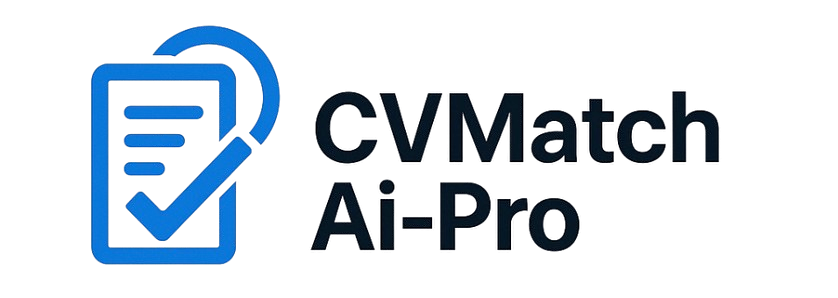How to Increase Recruitment Efficiency with AI
Recruitment efficiency is crucial in today’s fast-paced, competitive job market. Companies need to source, screen, and hire top talent quickly without sacrificing quality. Artificial intelligence (AI) offers a powerful solution, transforming traditional recruitment methods into agile, data-driven strategies. Let’s explore how AI can significantly boost recruitment efficiency and help organizations stay ahead.
The Efficiency Challenges of Traditional Recruitment
Despite technological advances, many recruitment teams still face bottlenecks and inefficiencies that delay hiring and waste valuable resources.
Manual Screening Overload
- Recruiters often sift through hundreds of resumes manually, leading to slow processing times and decision fatigue.
- Manual processes increase the likelihood of human error and unconscious bias in candidate evaluations.
- Valuable time spent on administrative tasks detracts from strategic candidate engagement activities.
Disorganized Candidate Pipelines
- Without streamlined workflows, candidates can slip through the cracks or experience inconsistent communication.
- Managing multiple requisitions manually leads to inefficient resource allocation and missed opportunities.
- Disorganization frustrates candidates and damages employer branding efforts.
How AI Boosts Recruitment Efficiency
AI-powered recruitment solutions automate repetitive tasks, provide data-driven insights, and optimize every stage of the hiring process. These tools empower recruiters to focus on higher-value activities that improve hiring outcomes.
Automated Resume Screening and Shortlisting
- AI algorithms quickly scan, parse, and rank resumes based on job-specific criteria, reducing screening times by up to 75%.
- Objective scoring ensures only the most qualified candidates advance, increasing selection speed and fairness.
- Automation frees recruiters to focus on relationship-building and interviewing rather than resume filtering.
Predictive Matching and Fit Scoring
- AI analyzes candidates’ skills, experience, and potential to predict their likelihood of success in specific roles.
- Predictive matching reduces reliance on “gut feelings” and improves the quality of shortlists.
- Higher-quality matches translate into faster interviews, fewer hiring rounds, and improved offer acceptance rates.
AI-Driven Communication and Scheduling
- Chatbots and virtual assistants automate candidate communications, providing updates, answering FAQs, and scheduling interviews seamlessly.
- AI scheduling tools reduce time-consuming coordination efforts between candidates and hiring teams.
- Streamlined communication keeps candidates engaged and the hiring process moving quickly.
Key Benefits of Using AI to Increase Recruitment Efficiency
Adopting AI in recruitment not only speeds up hiring but also improves the quality, consistency, and candidate experience throughout the process.
Faster Time-to-Hire
- Automation eliminates manual bottlenecks, significantly reducing the time from sourcing to offer acceptance.
- Faster hiring cycles enhance candidate experience and reduce the risk of losing top talent to competitors.
- Quickly filling vacancies maintains business continuity and reduces the financial impact of open roles.
Improved Candidate Quality
- AI matching identifies candidates who are not just qualified but also aligned with organizational culture and future needs.
- Higher-quality hires contribute to stronger team performance, lower turnover rates, and improved business outcomes.
- Data-driven decisions support a more strategic and consistent approach to talent acquisition.
Enhanced Recruiter Productivity
- Recruiters spend less time on repetitive tasks and more time on strategic initiatives like employer branding and talent pipelining.
- Increased efficiency reduces recruiter burnout and improves job satisfaction within HR teams.
- Smarter workflows enable recruiters to manage more requisitions without compromising quality.
Best Practices for Maximizing AI’s Impact on Recruitment Efficiency
Successfully leveraging AI requires careful selection, thoughtful implementation, and a focus on maintaining the human element in recruitment.
Select Purpose-Built AI Tools
- Choose AI platforms designed specifically for recruitment needs, offering features like predictive analytics, skills matching, and bias mitigation.
- Ensure tools integrate seamlessly with existing ATS and HRIS systems for streamlined workflows.
- Prioritize vendors who offer transparency, explainability, and strong support services.
Train Recruiters to Use AI Effectively
- Equip recruiters with the skills to interpret AI insights and apply them thoughtfully in hiring decisions.
- Foster collaboration between recruiters and AI systems to create a data-informed, candidate-centric hiring approach.
- Continuous learning ensures recruiters adapt to evolving technologies and maximize AI benefits.
Balance Automation with Personalization
- Use AI to handle repetitive tasks while maintaining personalized, empathetic interactions at key candidate touchpoints.
- Preserving the human connection ensures candidates feel valued and respected throughout the process.
- A balanced approach strengthens employer branding and improves offer acceptance rates.
Conclusion
AI is transforming recruitment efficiency by automating routine tasks, enhancing candidate matching, and empowering recruiters to focus on strategic hiring. Organizations that embrace AI thoughtfully can reduce time-to-hire, improve candidate quality, and deliver superior hiring experiences—positioning themselves as employers of choice in an increasingly competitive talent market.
